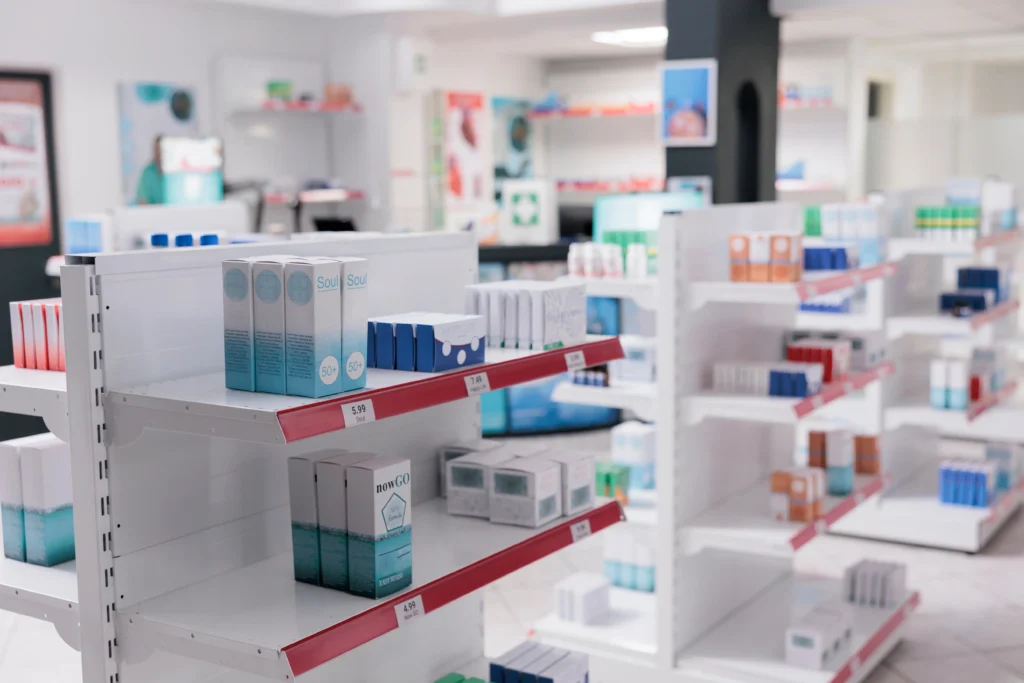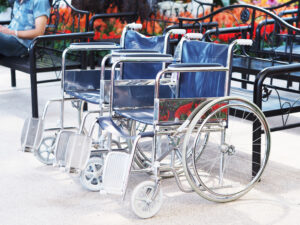In the ever-evolving landscape of healthcare, New Jersey’s local pharmacies are emerging as unexpected pioneers of innovation.
Far from being mere dispensaries of medication, these community pillars are redefining their roles, embracing technology, and spearheading initiatives that promise to revolutionize patient care.
This transformation is not just reshaping the pharmacy experience but is setting new standards for healthcare delivery across the state and beyond.
The Changing Face of Community Pharmacies
Traditionally, pharmacies were viewed as places to pick up prescriptions and perhaps grab a few over-the-counter medications. However, New Jersey’s local pharmacies are shattering this outdated perception.

Local Pharmacy Healthcare System
Today, they’re evolving into comprehensive health hubs, offering a wide array of services that extend far beyond filling prescriptions.
Many NJ pharmacies now feature in-house clinics staffed by nurse practitioners or physician assistants. These clinics provide basic health screenings, vaccinations, and even manage chronic conditions like diabetes and hypertension. This expansion of services not only improves accessibility to healthcare but also alleviates the burden on overextended primary care practices and emergency rooms.
Embracing Digital Health Technologies
At the forefront of the NJ Rx revolution is the adoption of cutting-edge digital health technologies. Local pharmacies are implementing sophisticated electronic health record (EHR) systems that integrate seamlessly with those used by hospitals and doctor’s offices. This interoperability ensures that pharmacists have access to a patient’s complete medical history, allowing for more informed decision-making and reducing the risk of medication errors.
Moreover, many NJ pharmacies are rolling out mobile apps that enable patients to manage their medications, schedule consultations, and even engage in telemedicine sessions with pharmacists. These digital tools are particularly beneficial for elderly patients or those with mobility issues, providing them with convenient access to pharmaceutical care from the comfort of their homes.
Personalized Medicine and Genomic Testing
In a groundbreaking move, several forward-thinking NJ pharmacies have begun offering pharmacogenomic testing services. This innovative approach uses genetic information to predict an individual’s response to specific medications, allowing for truly personalized drug therapy. By analyzing a patient’s genetic makeup, pharmacists can recommend medications that are more likely to be effective and less likely to cause adverse reactions.
This shift towards personalized medicine not only improves patient outcomes but also contributes to more cost-effective healthcare by reducing trial-and-error prescribing. As this technology becomes more widely available, New Jersey’s pharmacies are positioning themselves as leaders in this new era of precision medicine.
Community Outreach and Education
Understanding that prevention is often the best medicine, many NJ pharmacies are taking a proactive approach to community health. They’re organizing health fairs, conducting workshops on medication management, and offering nutrition counseling services. Some pharmacies have even partnered with local schools to educate students about the dangers of drug abuse and the importance of proper medication use.
These community outreach efforts not only improve public health awareness but also strengthen the bond between pharmacies and the communities they serve. By positioning themselves as trusted health advisors, these pharmacies are playing a crucial role in promoting overall wellness and preventing chronic diseases.
Collaborative Practice Agreements
One of the most significant innovations in NJ’s pharmacy landscape is the implementation of collaborative practice agreements (CPAs) between pharmacists and physicians. These agreements allow pharmacists to take on expanded roles in patient care, including adjusting medication dosages, ordering lab tests, and even prescribing certain medications under defined protocols.
This collaborative approach not only improves patient care by leveraging the unique expertise of pharmacists but also helps to address the shortage of primary care providers in many parts of the state. By allowing pharmacists to manage routine aspects of chronic disease care, physicians can focus on more complex cases, ultimately leading to more efficient and effective healthcare delivery.
Innovative Medication Management Solutions
New Jersey’s pharmacies are also at the forefront of developing innovative solutions for medication adherence – a critical factor in managing chronic conditions. Many have introduced smart pill dispensers that can be programmed to release the right medications at the right times, sending alerts to patients and caregivers if doses are missed.
Some pharmacies have gone a step further, offering medication synchronization programs. These programs coordinate all of a patient’s prescription refills to a single monthly pickup date, simplifying the process for patients with multiple medications and improving adherence rates.
Addressing the Opioid Crisis
In response to the ongoing opioid epidemic, NJ pharmacies have taken a leadership role in prevention and treatment efforts. Many now offer naloxone without a prescription and provide training on its use to patients and family members. Additionally, some pharmacies have implemented medication disposal programs, providing safe ways for patients to dispose of unused or expired medications, particularly opioids.
Furthermore, pharmacists are playing an active role in opioid stewardship programs, working with prescribers to ensure appropriate use of these medications and identifying patients who may be at risk for addiction.
The Future of Pharmacy in New Jersey
As we look to the future, it’s clear that New Jersey’s pharmacies will continue to be at the forefront of healthcare innovation. With discussions underway about expanding pharmacists’ scope of practice even further, we may soon see pharmacies offering services like point-of-care testing for strep throat or flu, or even managing straightforward acute conditions.
The NJ Rx revolution is transforming pharmacies from medication dispensers to comprehensive healthcare destinations. By embracing technology, expanding services, and focusing on patient-centered care, these local pharmacies are not just keeping pace with the changing healthcare landscape – they’re helping to shape it.
In conclusion, the innovative spirit of New Jersey’s local pharmacies is setting a new standard for healthcare delivery. As they continue to evolve and expand their roles, these pharmacies are proving that they are indispensable partners in achieving better health outcomes for communities across the Garden State. The NJ Rx revolution is not just changing pharmacies; it’s reimagining the future of healthcare itself.




